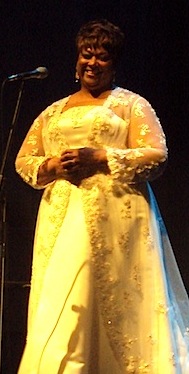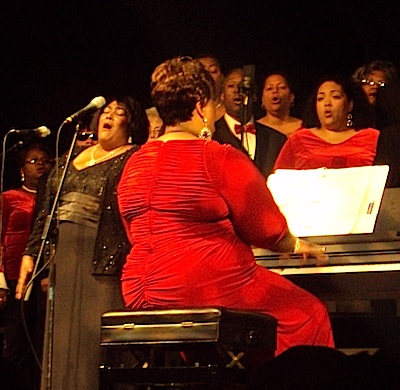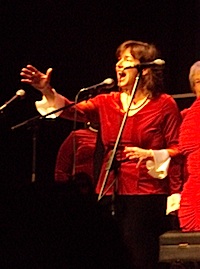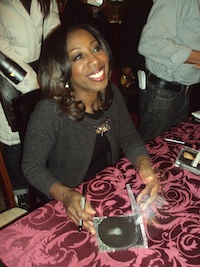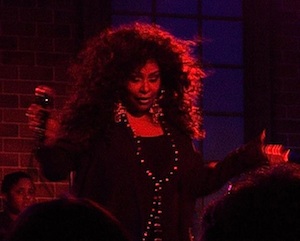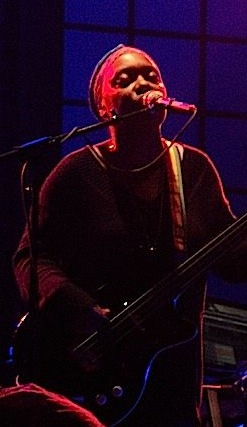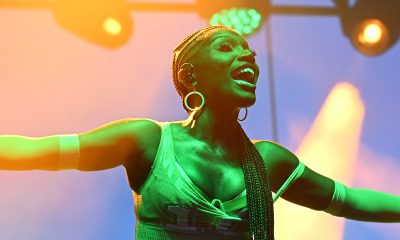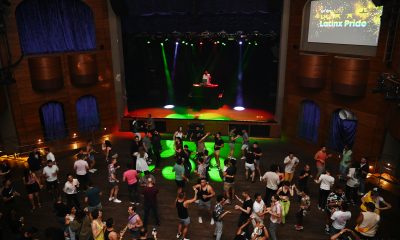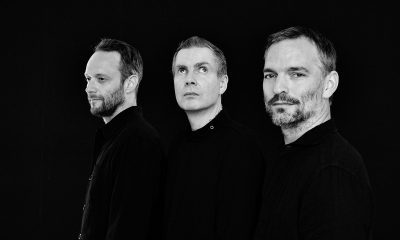Arts & Entertainment
MCC bids Hughes farewell
Gay church choir joined by GMCW; Chaka Khan and Meshell Ndegeocello also had recent D.C. appearances
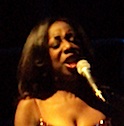
Metropolitan Community Church of Washington (MCC-D.C.) pulled out all the stops for its Christmas concert this year but even with another diva in the house — guest singer Oleta Adams — it was still Shirli Hughes’ night, as it should have been.
Hughes, the church’s minister of music (and a lesbian), has resigned and Saturday night’s concert was her swan song after a decade running the church’s music program. It felt as though she decided to go out with a bang — the concert was held at the Lincoln Theater (usually all MCC concerts are held at the church) and there were two big guests: Adams and a healthy fraction of the Gay Men’s Chorus of Washington which has its own holiday show the weekend of the 16th (go here for details).
That Adams sang beautifully was almost a given. She owned the stage during a three-song mini-set late in the second half during which she accompanied herself on electric piano with her hit “Get Here” and an exquisite cover of Amy Grant’s “Mary’s Song (Breath of Heaven)” that’s also on Adams’ Christmas album. Initially I thought she sounded too muscular for the tender lullaby but she settled into a moving rendition of the song marked by dead-on phrasing and vocal nuance.
And, of course, I know rehearsal time is often either highly limited or non-existent when you bring in a big-name artist, but it was almost tragic to hear the canned backing vocals on her opening number “Hark the Herald Angels Sing” considering the bounty of choral talent that was sitting back stage. Thankfully she joined them on closing song “Joy to the World” (mostly the Three Dog Night version but not entirely), which gave the concert a less compartmentalized feel among its participants which, prior to that, had been totally insular (the MCC choir didn’t sing a note with the GMCW; they’re much different outfits, of course, but some sort of collaboration would have been refreshing).
The concert, playing to a packed house, was designed to give the church a chance to show off its abundance of talent. Several soloists — especially Marcia Newbill, Gbenimah Slopadoe, Jeffrey Herrell and Yartumo Gborkorquellie — have pro-caliber voices and could be on Broadway or in Los Angeles recording studios if they wished. Equally good, Natalie Carter’s warm, silky solo on “My Sweet Lawd” was understated yet powerful. And old MCC standbys Lisa Carrol, Tanya Harper and Michelle Lanchester (Hughes’ partner) were each in fine voice. Carrol, who possesses a lovely alto timbre, has excelled under Hughes’ guidance and has found new range in her interpretive abilities. And Lanchester, a soul growler who can ad lib with all the passion and fire of any big-name gospel act, sounded better than ever last night. She has, at times, been hampered by muddy acoustics and ill-tempered mics in the MCC sanctuary but last night the balance was perfect. There were some howling mics here and there, sadly, but they were mostly worked out by the time she came on.
Hughes opened the second half with two solos — “Ave Maria” and “O Holy Night,” both of which she’s performed previously at the church. The latter, especially, was lovely and allowed her to show off her interpretive finesse and range to their fullest. They also exemplified, by contrast, what makes Hughes such a rare talent — she can kick back and throw down with the most sanctifying gospel grooves but on her solo selections she proves she’s got great classical sensibilities as well and is undeniably a trained singer. It’s quite rare to find a musician, whether he or she is singing or directing (or accompanying as Hughes also does), who can pull off both extremes so successfully. Though mercurial at times — and she would likely admit to that — she leaves enormous shoes for the church to fill. Music can totally make or break a worship service.
The Gay Men’s Chorus sounded lovely as usual — their harmonies, tighter and more refined (but also more staid) than MCC’s — are undeniably great. Their overall pitch is as precise as a tuning fork. They continue to excel under Jeff Burhman’s sturdy leadership.
There was only one misstep of the evening but unfortunately, in my estimation anyway, it was a huge one — a medley of Hanukkah songs the GMCW closed its mini-set with. While musically they provided the show with a nice change of pace, thematically it was jarring and completely out of place. I’m all for diversity and respect of other faiths especially during the holidays, but MCC is a Christian church and this was a Christmas concert. A few secular songs that were included — a slightly wobbly “Christmas Song” by the church’s string ensemble and a medley of “I’ll Be Home for Christmas” and “Merry Christmas Darling” by the GMCW — were fine. And I’m not of the mindset, as are many Christians, that everything performed during a church program has to be explicitly religion in text. Yes, Jesus Christ was Jewish himself, but to include a selection of material that rejects the divinity of Christ at a Christian Christmas concert was offensive. I was probably in the minority on this point though — the number was as heartily applauded as any of the night. It’s a shame, though, as the GMCW has several gorgeous sacred Christmas numbers in its repertoire — much more appropriate would have been selections like the Bass “Gloria,” or the Mendelssohn “Say Where He is Born” or “There Shall a Star” they performed at their own concert last year.
But that’s quibbling — overall, it was a great, great night. Kudos to Adams for graciously singing autographs and posing for photos after the show.
I’ve been meaning to blog, too, about two other concerts I caught in recent weeks that are both of considerable queer appeal. Chaka Khan played a tight half jazz/half pop/funk concert during a two-night run at the Birchmere last week. I caught the first show Monday night. And bi bassist Meshell Ndegeocello was also at the Birchmere a couple weeks before (on Nov. 15) for her “Weather Tour,” supporting her brand new album. I interviewed both of them (here and here) prior to their appearances.
Khan’s was far tighter and more generous. Playing an hour-and-45-minute set, she opened with standards like “I’ll Be Around,” “To Sir With Love” and “My Funny Valentine” before putting her own stamp on a four-song set of Joni Mitchell covers, only one of which (“Ladies Man”) she’s recorded herself. The standouts were the moody — it’s perhaps the darkest song in Mitchell’s entire canon — “Two Grey Rooms” and a highly unusual take on “Man From Mars” that gave her kick-ass band time to solo and jam. You wouldn’t think they’d pick that kind of a song on which to solo — Mitchell’s version is slow and atmospheric — but somehow it worked.
Khan closed her show with several hits — “Everlasting Love,” “Tell Me Something Good” and “What Cha Gonna Do 4 Me” (but not “I’m Every Woman”). She gamely sang an a cappella verse and chorus of “Fool’s Paradise” at a request, and gave her testimony of getting clean during an emotional reading of “Through the Fire.” She was in dazzlingly fine voice — her extraordinary pipes are as bright and strong as they’ve ever sounded. Her voice is a feat of nature — she could blow Aretha Franklin, Whitney Houston and Gladys Knight away with a sneeze and I’m not exaggerating.
Meshell, conversely, is almost an anti-singer, an anti-entertainer. She’s much more a funky groove chef than a great singer. Her vocals are wispy and non-committal, but armed with her bass and a tight band, there were smoldering sonic stews being conjured throughout her hour-and-20-minute set. She also does exactly as she pleases. There were no hits (unless you count the one “Plantation Lullabies” song she performed, “Outside Your Door”) and 11 of the 17 songs she did are from the new album. I’m all for artistic license and unpredictability — you don’t go to a Meshell show expecting hits — but even that was, admittedly a bit self indulgent on her part. But she doesn’t care and that’s part of her charm. She did make some small talk and said she was enjoying herself — but she’s so laid back and “chill” it can be a bit polarizing. Nobody expects her to be Wayne Newton, of course, but I mean c’mon — isn’t there some middle ground she could stomach without feeling like a human juke box?
MCC’s set:
1. Andaluza (piano solo)
2. The Christmas Song (strings)
3. Gloria We Sing
4. Hallelujah
5. Amen
6. My Sweet Lawd
7. Emmanuel Medley
8. Jesus Brings Joy
9. Perfect Praise
10. Wonderful Child Medley
11. Ave Maria
12. O Holy Night
13. In the Bleak Midwinter (GMCW)
14. I’ll Be Home For Christmas/Merry Christmas Darling (GMCW)
15. Music of Hanukkah (GMCW)
16. Hark the Herald Angels Sing/Angels We Have Heard on High (Oleta Adams)
17. Breath of Heaven (Oleta Adams)
18. Get Here (Oleta Adams)
19. Carols from around the world — a cappella (various soloists)
20. Joy to the World (MCC w/ Oleta Adams)
Chaka Khan’s set
1. High Wire
2. I’ll Be Around
3. To Sir With Love
4. My Funny Valentine
5. Hissing of Summer Lawns
6. Two Grey Rooms
7. Man From Mars
8. Ladies Man
9. Angel
10. Everlasting Love
11. Through the Fire
12. Tell Me Something Good
13. Fool’s Paradise
14. What Cha Gonna Do 4 Me
15. Ain’t Nobody (encore)
Meshell Ndegeocello’s set
1. Grace
2. Faithful
3. Dirty World
4. A Bitter Mule
5. Bright Shiny Morning
6. Lady Cab Driver (Prince)
7. Outside Your Door
8. Blood on the Curb
9. Feeling for the Wall
10. Chance
11. Objects in Mirror Are Closer Than They Appear
12. Oyster
13. Crazy and Wild
14. Weather
15. Rapid Fire
16. Don’t Take My Kindness for Weakness
17. Dead End (encore)
Movies
Radical reframing highlights the ‘Wuthering’ highs and lows of a classic
Emerald Fennell’s cinematic vision elicits strong reactions

If you’re a fan of “Wuthering Heights” — Emily Brontë’s oft-filmed 1847 novel about a doomed romance on the Yorkshire moors — it’s a given you’re going to have opinions about any new adaptation that comes along, but in the case of filmmaker Emerald Fennell’s new cinematic vision of this venerable classic, they’re probably going to be strong ones.
It’s nothing new, really. Brontë’s book has elicited controversy since its first publication, when it sparked outrage among Victorian readers over its tragic tale of thwarted lovers locked into an obsessive quest for revenge against each other, and has continued to shock generations of readers with its depictions of emotional cruelty and violent abuse, its dysfunctional relationships, and its grim portrait of a deeply-embedded class structure which perpetuates misery at every level of the social hierarchy.
It’s no wonder, then, that Fennell’s adaptation — a true “fangirl” appreciation project distinguished by the radical sensibilities which the third-time director brings to the mix — has become a flash point for social commentators whose main exposure to the tale has been flavored by decades of watered-down, romanticized “reinventions,” almost all of which omit large portions of the novel to selectively shape what’s left into a period tearjerker about star-crossed love, often distancing themselves from the raw emotional core of the story by adhering to generic tropes of “gothic romance” and rarely doing justice to the complexity of its characters — or, for that matter, its author’s deeper intentions.
Fennell’s version doesn’t exactly break that pattern; she, too, elides much of the novel’s sprawling plot to focus on the twisted entanglement between Catherine Earnshaw (Margot Robbie), daughter of the now-impoverished master of the titular estate (Martin Clunes), and Heathcliff (Jacob Elordi), a lowborn child of unknown background origin that has been “adopted” by her father as a servant in the household. Both subjected to the whims of the elder Earnshaw’s violent temper, they form a bond of mutual support in childhood which evolves, as they come of age, into something more; yet regardless of her feelings for him, Cathy — whose future status and security are at risk — chooses to marry Edgar Linton (Shazad Latif), the financially secure new owner of a neighboring estate. Heathcliff, devastated by her betrayal, leaves for parts unknown, only to return a few years later with a mysteriously-obtained fortune. Imposing himself into Cathy’s comfortable-but-joyless matrimony, he rekindles their now-forbidden passion and they become entwined in a torrid affair — even as he openly courts Linton’s naive ward Isabella (Alison Oliver) and plots to destroy the entire household from within. One might almost say that these two are the poster couple for the phrase “it’s complicated.” and it’s probably needless to say things don’t go well for anybody involved.
While there is more than enough material in “Wuthering Heights” that might easily be labeled as “problematic” in our contemporary judgments — like the fact that it’s a love story between two childhood friends, essentially raised as siblings, which becomes codependent and poisons every other relationship in their lives — the controversy over Fennell’s version has coalesced less around the content than her casting choices. When the project was announced, she drew criticism over the decision to cast Robbie (who also produced the film) opposite the younger Elordi. In the end, the casting works — though the age gap might be mildly distracting for some, both actors deliver superb performances, and the chemistry they exude soon renders it irrelevant.
Another controversy, however, is less easily dispelled. Though we never learn his true ethnic background, Brontë’s original text describes Heathcliff as having the appearance of “a dark-skinned gipsy” with “black fire” in his eyes; the character has typically been played by distinctly “Anglo” men, and consequently, many modern observers have expressed disappointment (and in some cases, full-blown outrage) over Fennel’s choice to use Elordi instead of putting an actor of color for the part, especially given the contemporary filter which she clearly chose for her interpretation for the novel.
In fact, it’s that modernized perspective — a view of history informed by social criticism, economic politics, feminist insight, and a sexual candor that would have shocked the prim Victorian readers of Brontë’s novel — that turns Fennell’s visually striking adaptation into more than just a comfortably romanticized period costume drama. From her very opening scene — a public hanging in the village where the death throes of the dangling body elicit lurid glee from the eagerly-gathered crowd — she makes it oppressively clear that the 18th-century was not a pleasant time to live; the brutality of the era is a primal force in her vision of the story, from the harrowing abuse that forges its lovers’ codependent bond, to the rigidly maintained class structure that compels even those in the higher echelons — especially women — into a kind of slavery to the system, to the inequities that fuel disloyalty among the vulnerable simply to preserve their own tenuous place in the hierarchy. It’s a battle for survival, if not of the fittest then of the most ruthless.
At the same time, she applies a distinctly 21st-century attitude of “sex-positivity” to evoke the appeal of carnality, not just for its own sake but as a taste of freedom; she even uses it to reframe Heathcliff’s cruel torment of Isabella by implying a consensual dom/sub relationship between them, offering a fragment of agency to a character typically relegated to the role of victim. Most crucially, of course, it permits Fennell to openly depict the sexuality of Cathy and Heathcliff as an experience of transgressive joy — albeit a tormented one — made perhaps even more irresistible (for them and for us) by the sense of rebellion that comes along with it.
Finally, while this “Wuthering Heights” may not have been the one to finally allow Heathcliff’s ambiguous racial identity to come to the forefront, Fennell does employ some “color-blind” casting — Latif is mixed-race (white and Pakistani) and Hong Chau, understated but profound in the crucial role of Nelly, Cathy’s longtime “paid companion,” is of Vietnamese descent — to illuminate the added pressures of being an “other” in a world weighted in favor of sameness.
Does all this contemporary hindsight into the fabric of Brontë’s epic novel make for a quintessential “Wuthering Heights?” Even allowing that such a thing were possible, probably not. While it presents a stylishly crafted and thrillingly cinematic take on this complex classic, richly enhanced by a superb and adventurous cast, it’s not likely to satisfy anyone looking for a faithful rendition, nor does it reveal a new angle from which the “romance” at its center looks anything other than toxic — indeed, it almost fetishizes the dysfunction. Even without the thorny debate around Heathcliff’s racial identity, there’s plenty here to prompt purists and revisionists alike to find fault with Fennell’s approach.
Yet for those looking for a new window into to this perennial classic, and who are comfortable with the radical flourish for which Fennell is already known, it’s an engrossing and intellectually stimulating exploration of this iconic story in a way that exchanges comfortable familiarity for unpredictable chaos — and for cinema fans, that’s more than enough reason to give “Wuthering Heights” a chance.
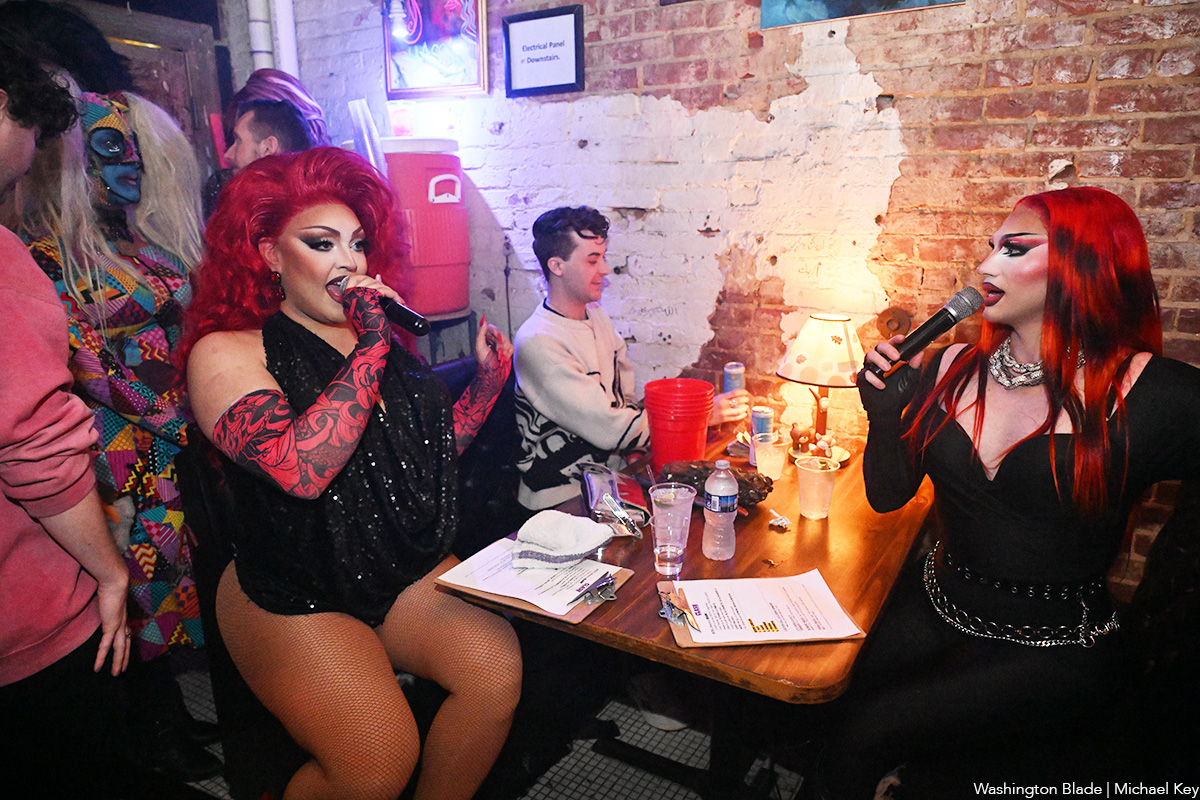
Crimsyn and Tatianna hosted the new weekly drag show Clash at Trade (1410 14th Street, N.W.) on Feb. 14, 2026. Performers included Aave, Crimsyn, Desiree Dik, and Tatianna.
(Washington Blade photos by Michael Key)
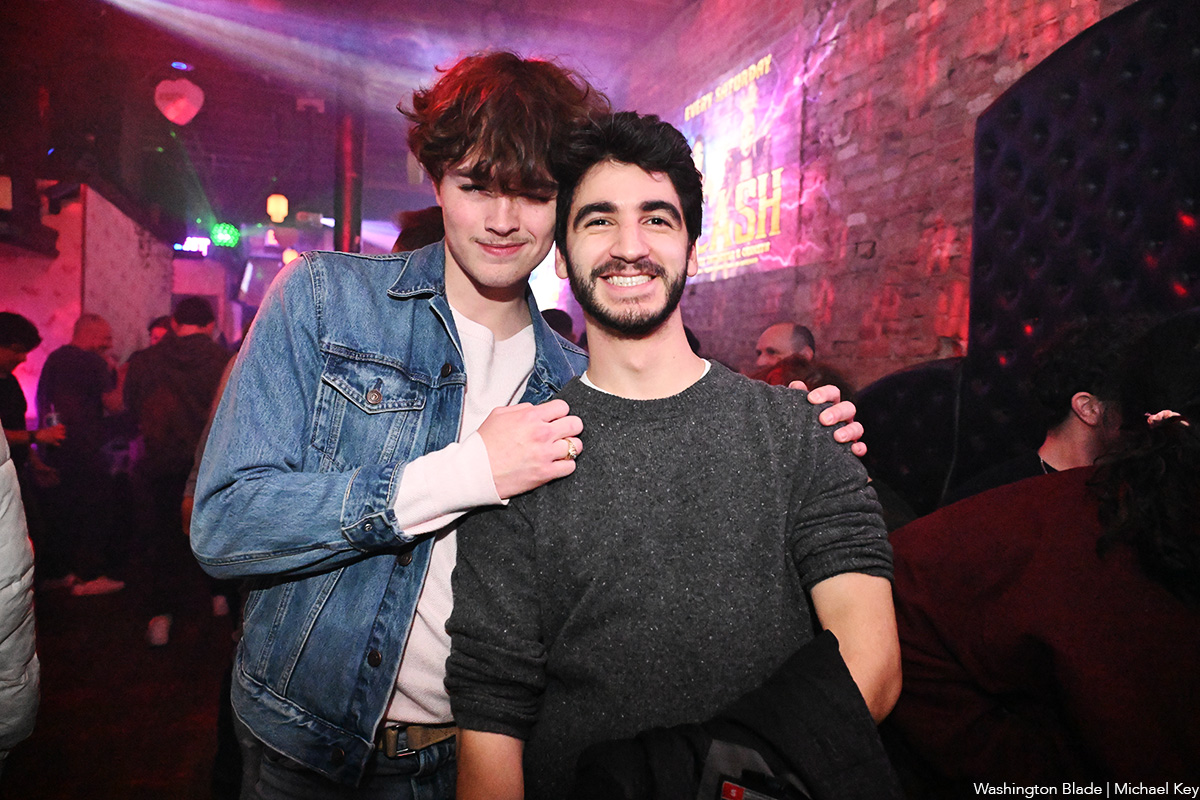
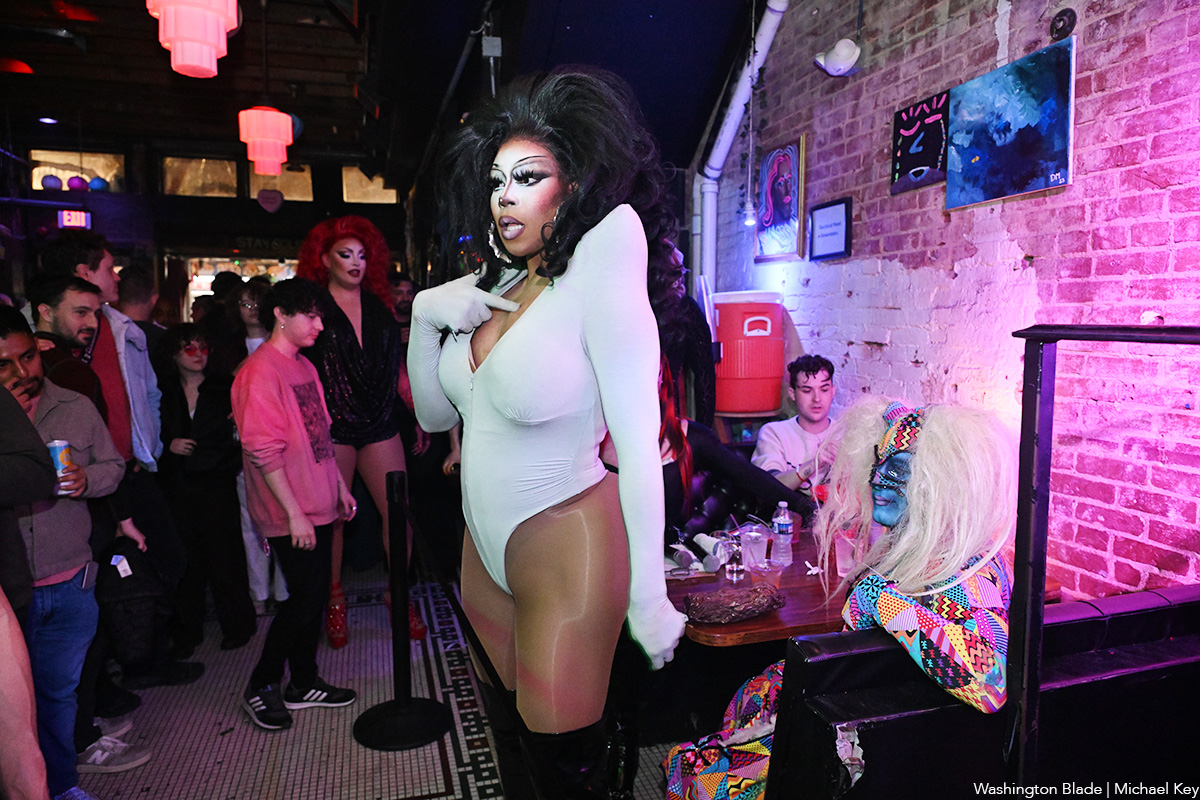
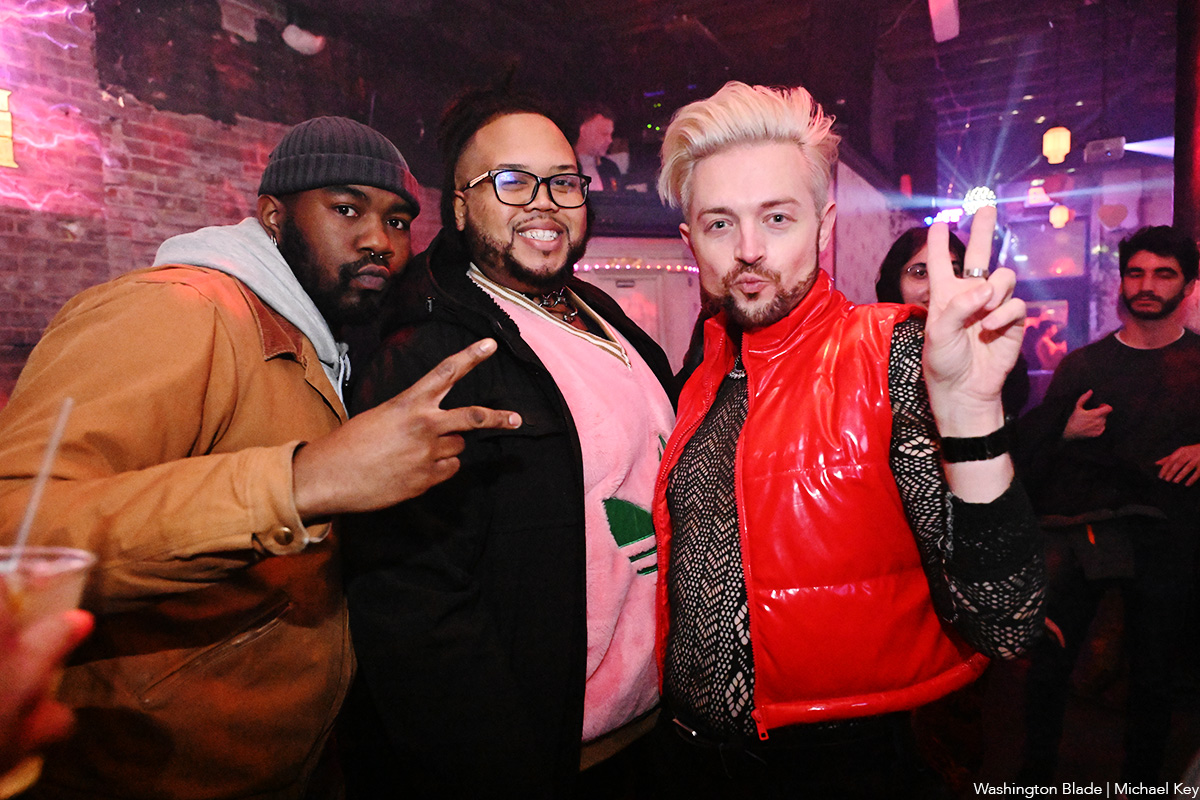
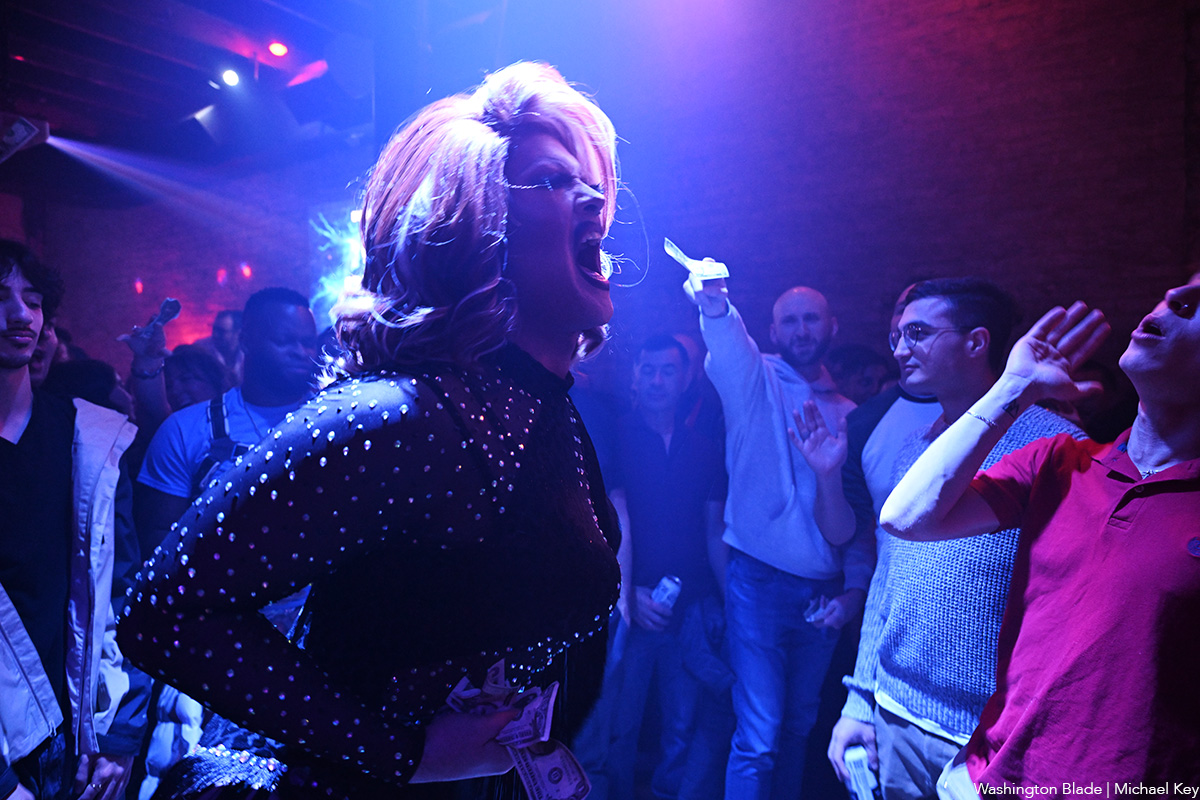
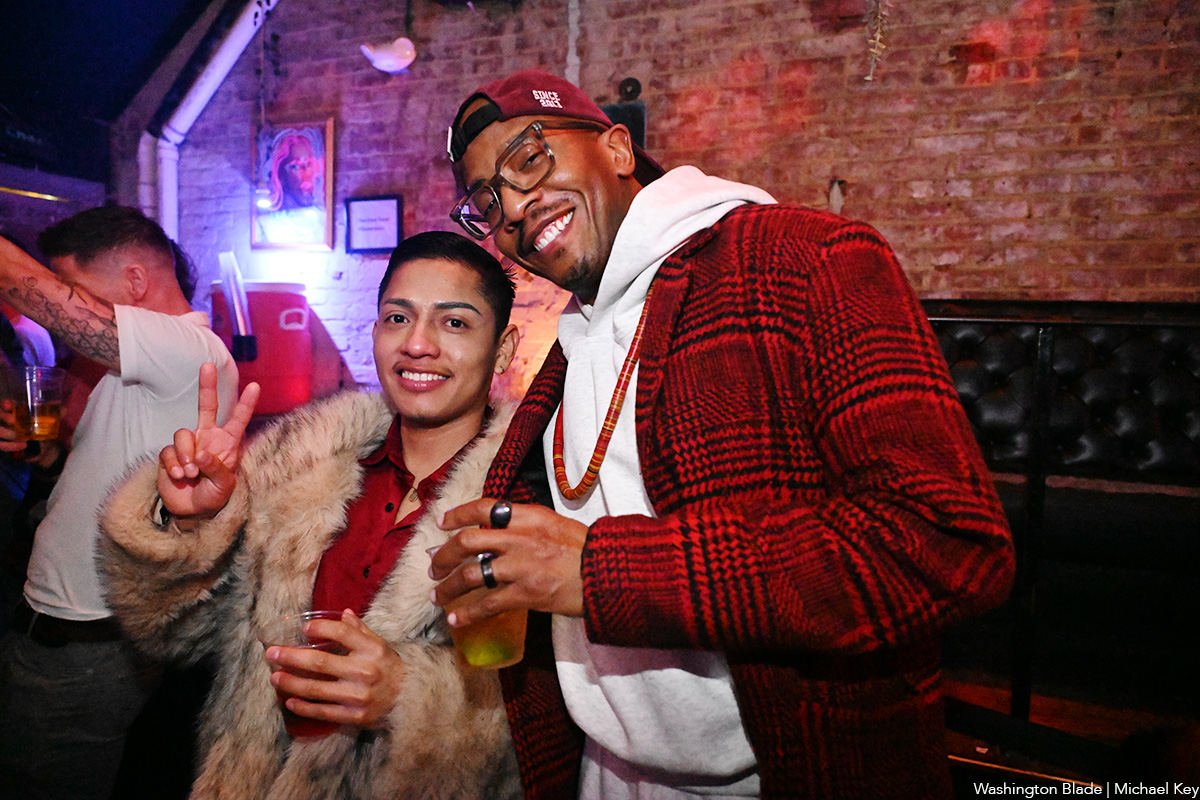
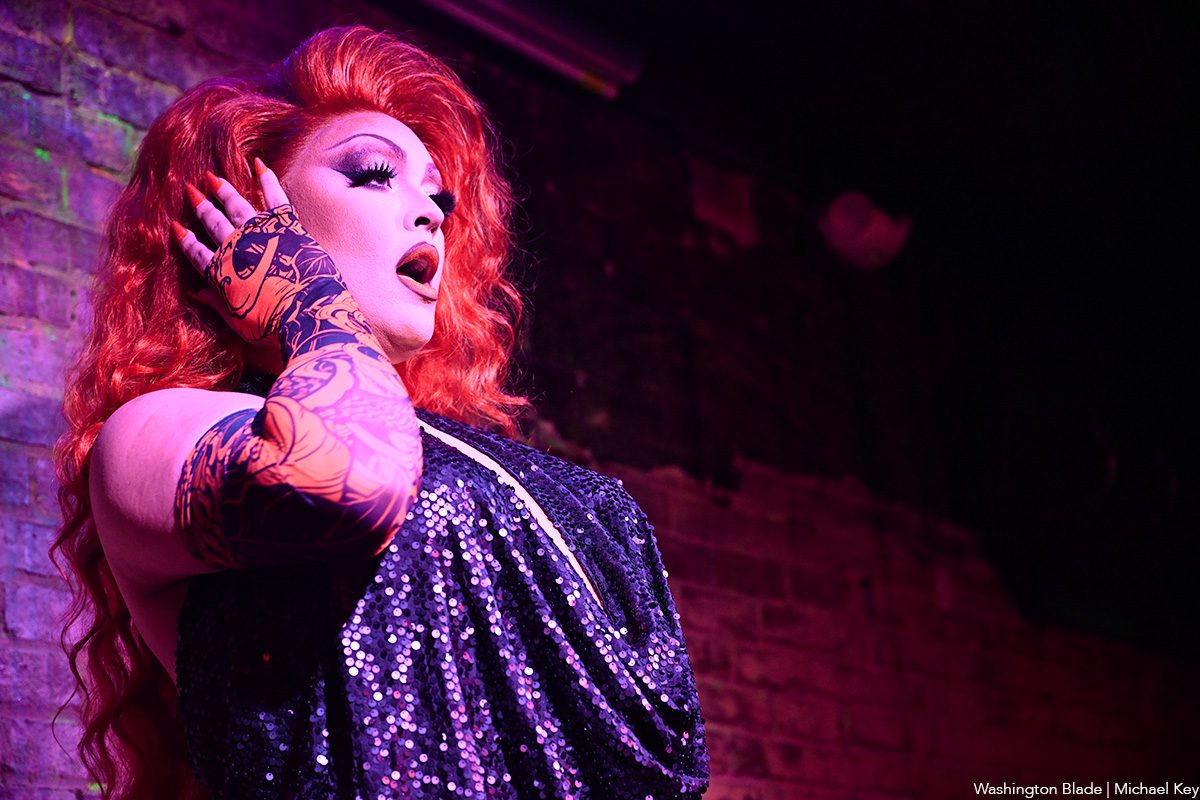
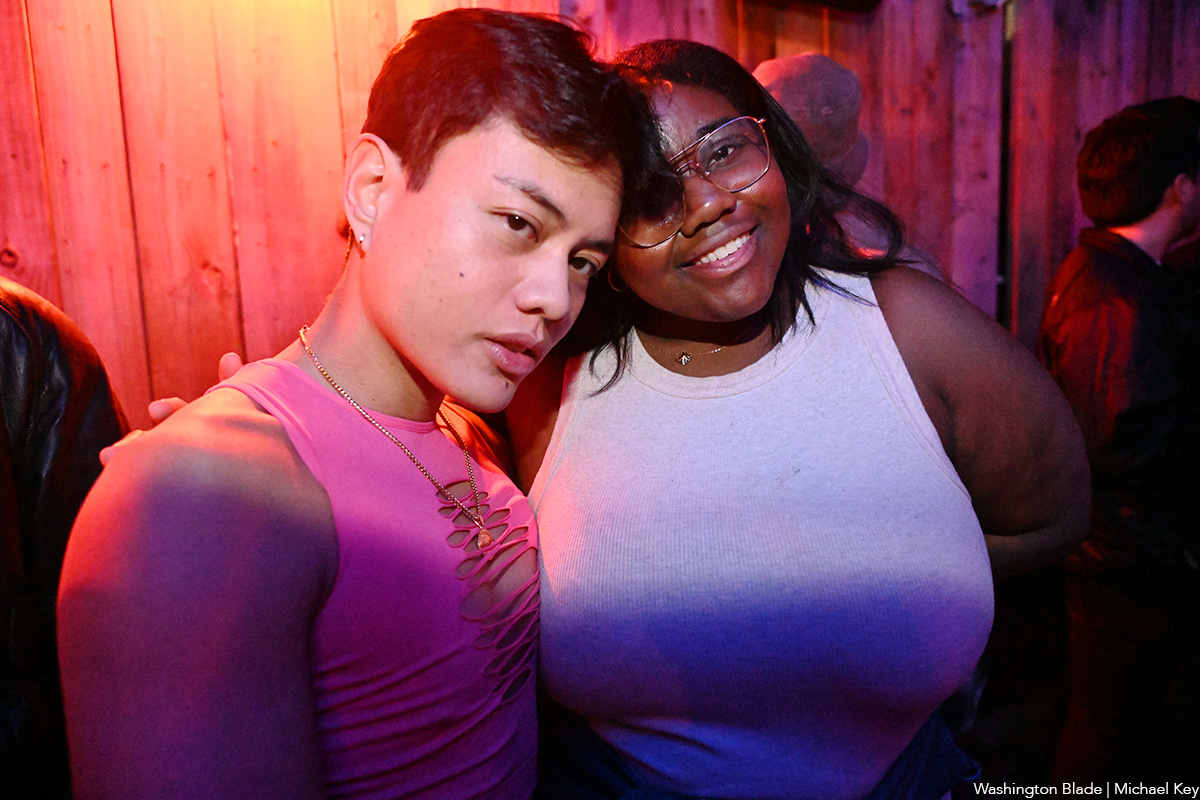
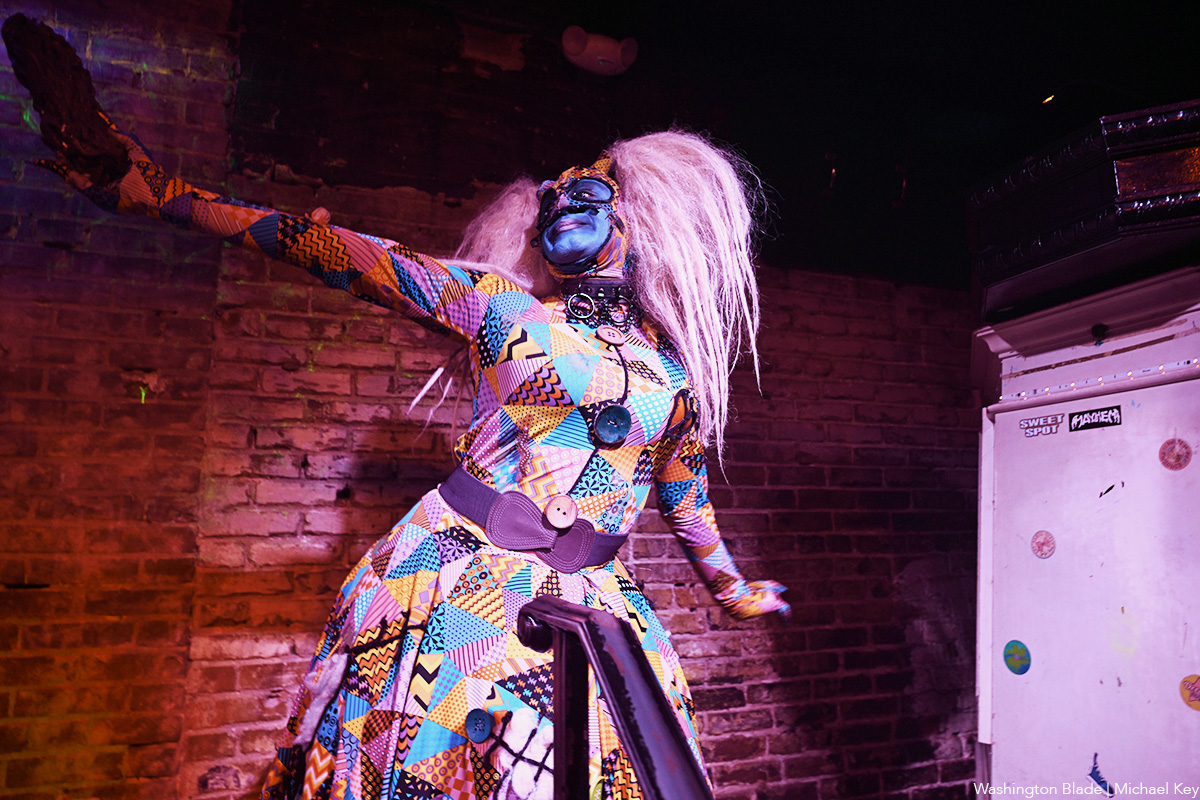
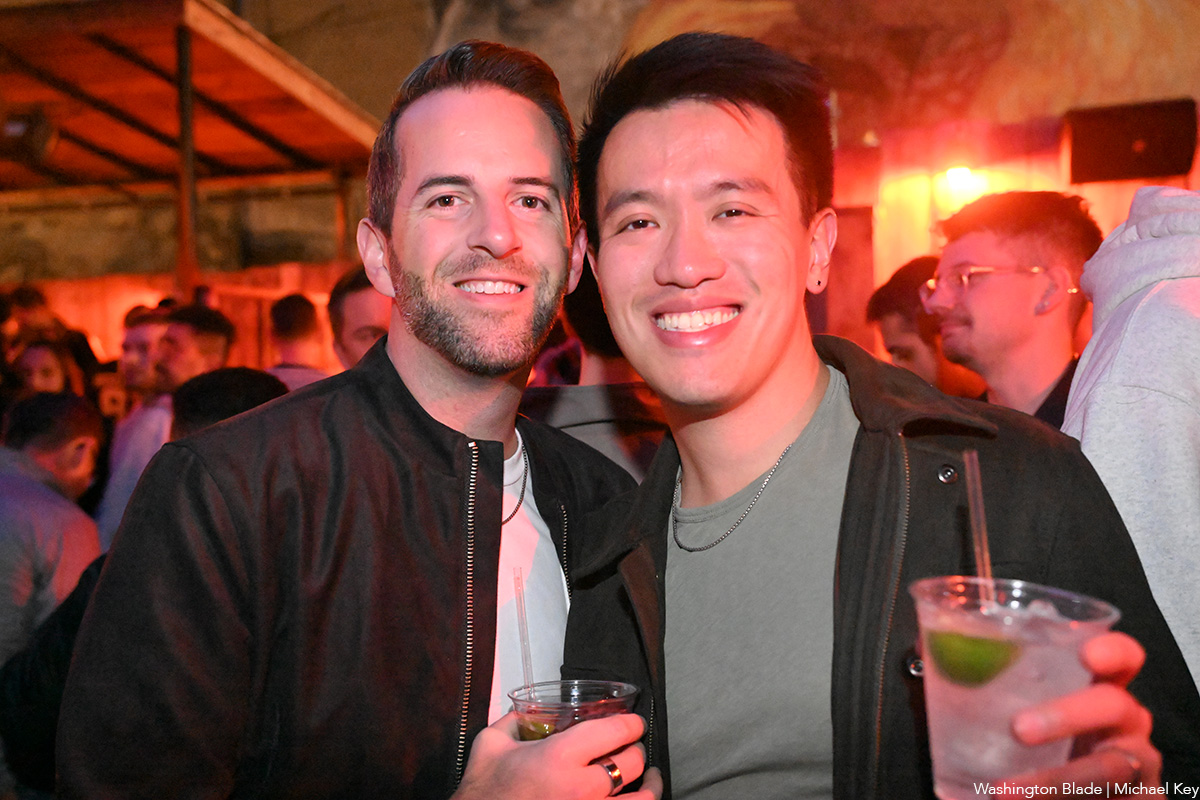
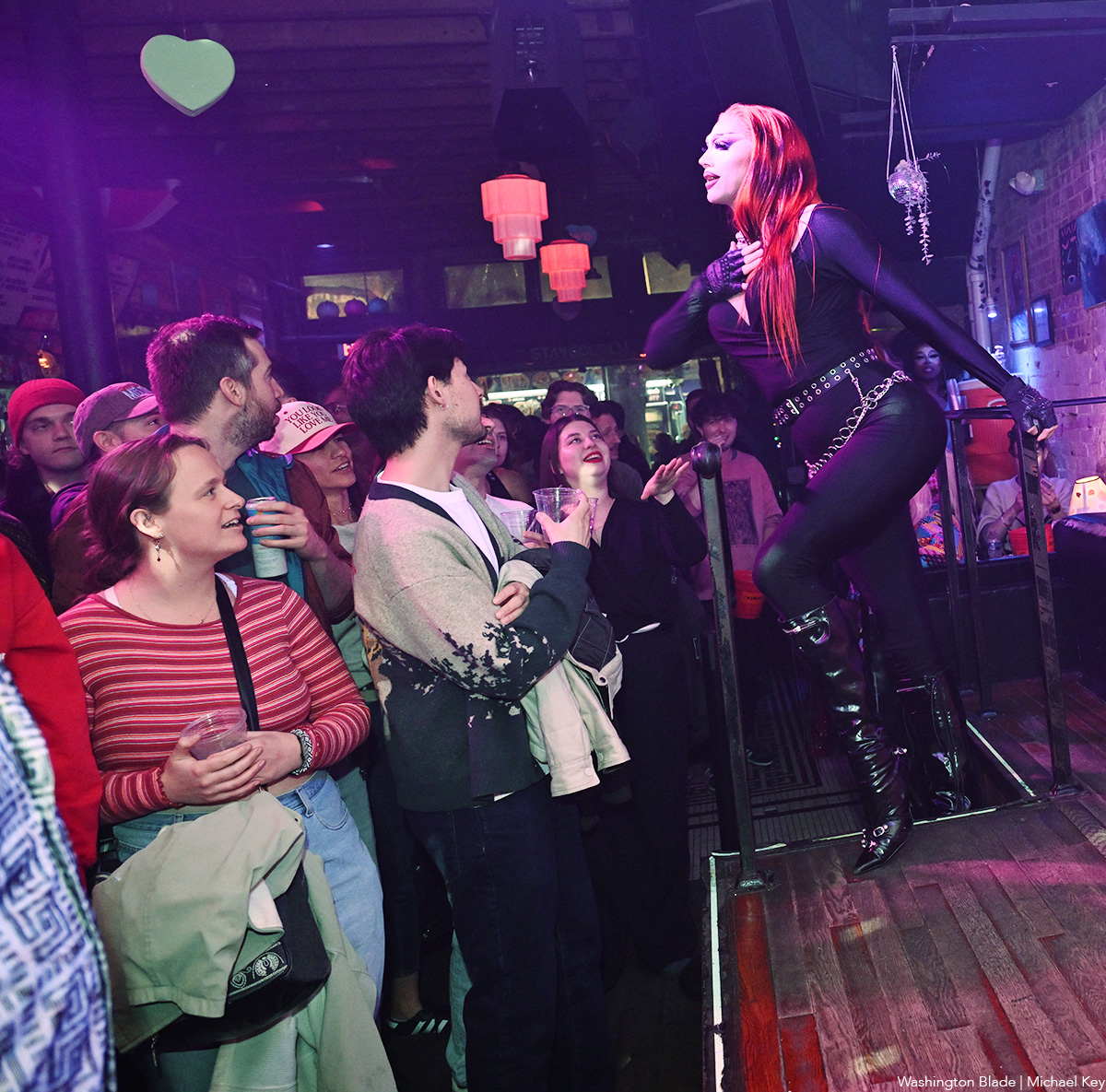
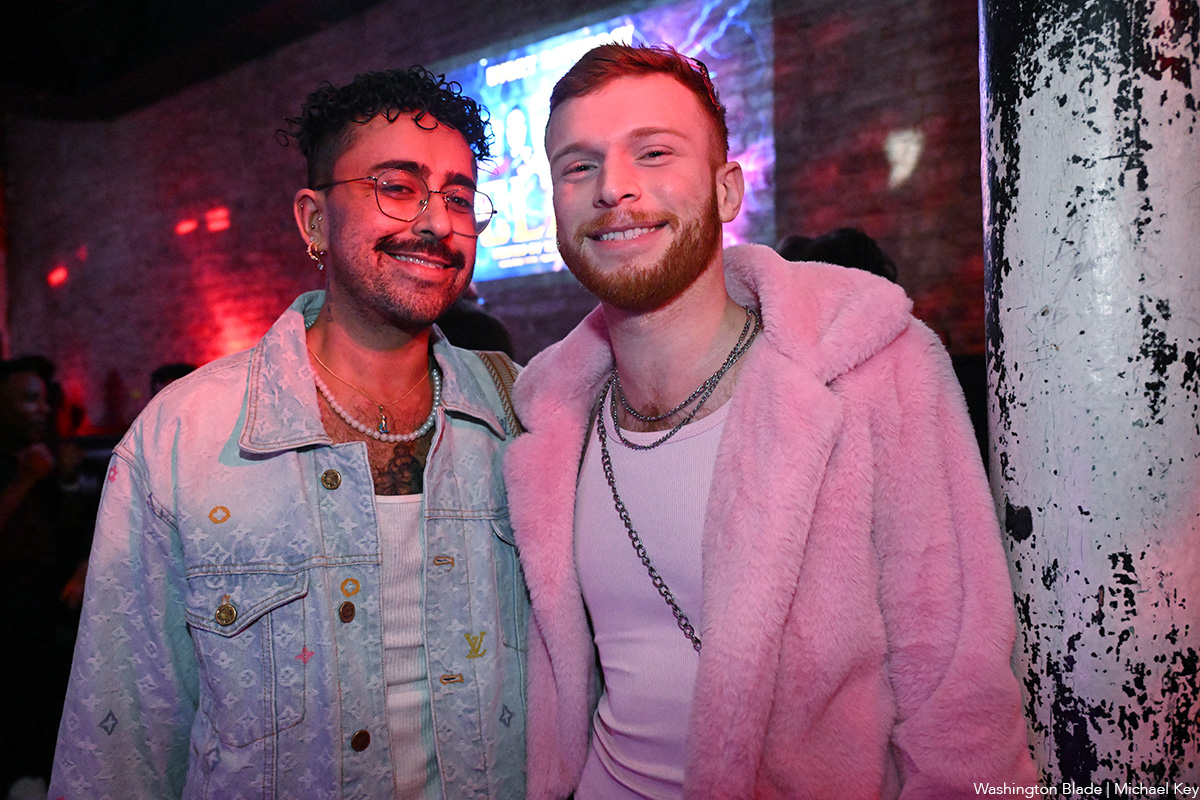
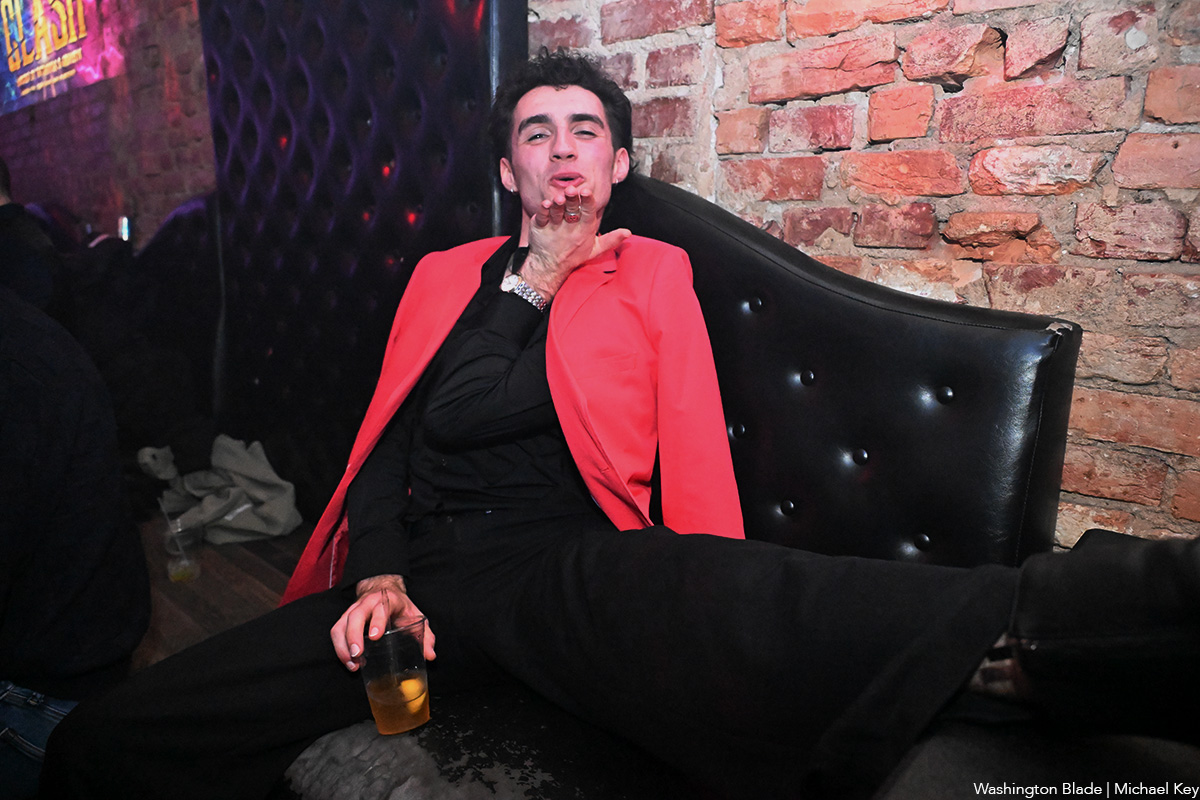
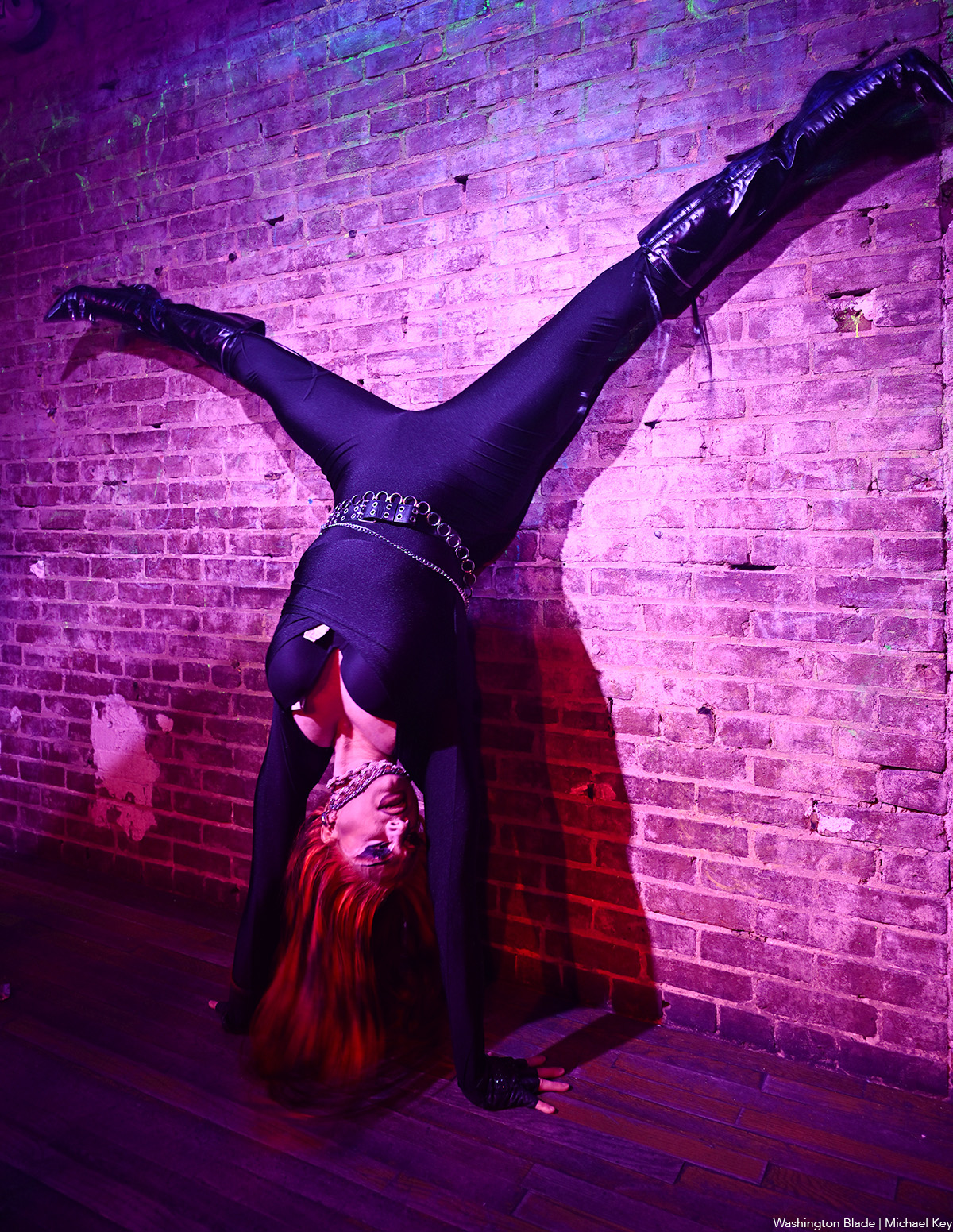
Theater
Magic is happening for Round House’s out stage manager
Carrie Edick talks long hours, intricacies of ‘Nothing Up My Sleeve’

‘Nothing Up My Sleeve’
Through March 15
Round House Theatre
4545 East-West Highway
Bethesda, Md. 20814
Tickets start at $50
Roundhousetheatre.org
Magic is happening for out stage manager Carrie Edick.
Working on Round House Theatre’s production of “Nothing Up My Sleeve,” Edick quickly learned the ways of magicians, their tricks, and all about the code of honor among those who are privy to their secrets.
The trick-filled, one-man show starring master illusionist Dendy and staged by celebrated director Aaron Posner, is part exciting magic act and part deeply personal journey. The new work promises “captivating storytelling, audience interaction, jaw-dropping tricks, and mind-bending surprises.”
Early in rehearsals, there was talk of signing a non-disclosure agreement (NDA) for production assistants. It didn’t happen, and it wasn’t necessary, explains Edick, 26. “By not having an NDA, Dendy shows a lot of trust in us, and that makes me want to keep the secrets even more.
“Magic is Dendy’s livelihood. He’s sharing a lot and trusting a lot; in return we do the best we can to support him and a large part of that includes keeping his secrets.”
As a production assistant (think assistant stage manager), Edick strives to make things move as smoothly as possible. While she acknowledges perfection is impossible and theater is about storytelling, her pursuit of exactness involves countless checklists and triple checks, again and again. Six day weeks and long hours are common. Stage managers are the first to arrive and last to leave.
This season has been a lot about learning, adds Edick. With “The Inheritance” at Round House (a 22-week long contract), she learned how to do a show in rep which meant changing from Part One to Part Two very quickly; “In Clay” at Signature Theatre introduced her to pottery; and now with “Nothing Up My Sleeve,” she’s undergoing a crash course in magic.
She compares her career to a never-ending education: “Stage managers possess a broad skillset and that makes us that much more malleable and ready to attack the next project. With some productions it hurts my heart a little bit to let it go, but usually I’m ready for something new.”
For Edick, theater is community. (Growing up in Maryland, she was a shy kid whose parents signed her up for theater classes.) Now that community is the DMV theater scene and she considers Round House her artistic home. It’s where she works in different capacities, and it’s the venue in which she and actor/playwright Olivia Luzquinos chose to be married in 2024.
Edick came out in middle school around the time of her bat mitzvah. It’s also around the same time she began stage managing. Throughout high school she was the resident stage manager for student productions, and also successfully participated in county and statewide stage management competitions which led to a scholarship at the University of Maryland, Baltimore County (UMBC) where she focused on technical theater studies.
Edick has always been clear about what she wants. At an early age she mapped out a theater trajectory. Her first professional gig was “Tuesdays with Morrie” at Theatre J in 2021. She’s worked consistently ever since.
Stage managing pays the bills but her resume also includes directing and intimacy choreography (a creative and technical process for creating physical and emotional intimacy on stage). She names Pulitzer Prize winning lesbian playwright Paula Vogel among her favorite artists, and places intimacy choreographing Vogel’s “How I learned to Drive” high on the artistic bucket list.
“To me that play is heightened art that has to do with a lot of triggering content that can be made very beautiful while being built to make you feel uncomfortable; it’s what I love about theater.”
For now, “Nothing Up My Sleeve” keeps Edick more than busy: “For one magic trick, we have to set up 100 needles.”
Ultimately, she says “For stage managers, the show should stay the same each night. What changes are audiences and the energy they bring.”
-

 Theater5 days ago
Theater5 days agoMagic is happening for Round House’s out stage manager
-

 Baltimore3 days ago
Baltimore3 days ago‘Heated Rivalry’ fandom exposes LGBTQ divide in Baltimore
-

 Real Estate3 days ago
Real Estate3 days agoHome is where the heart is
-

 District of Columbia3 days ago
District of Columbia3 days agoDeon Jones speaks about D.C. Department of Corrections bias lawsuit settlement

